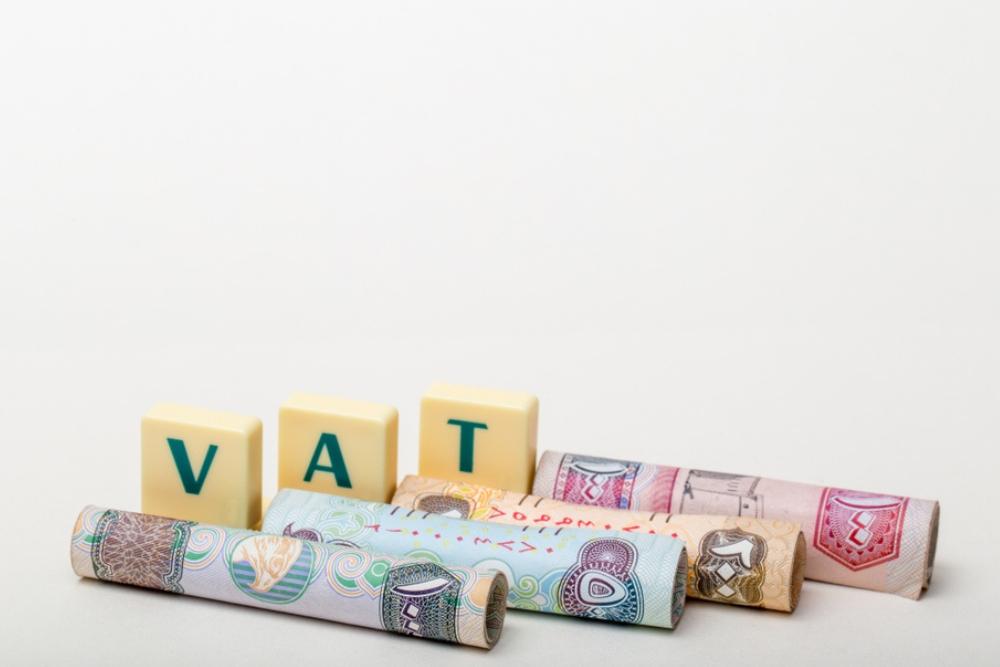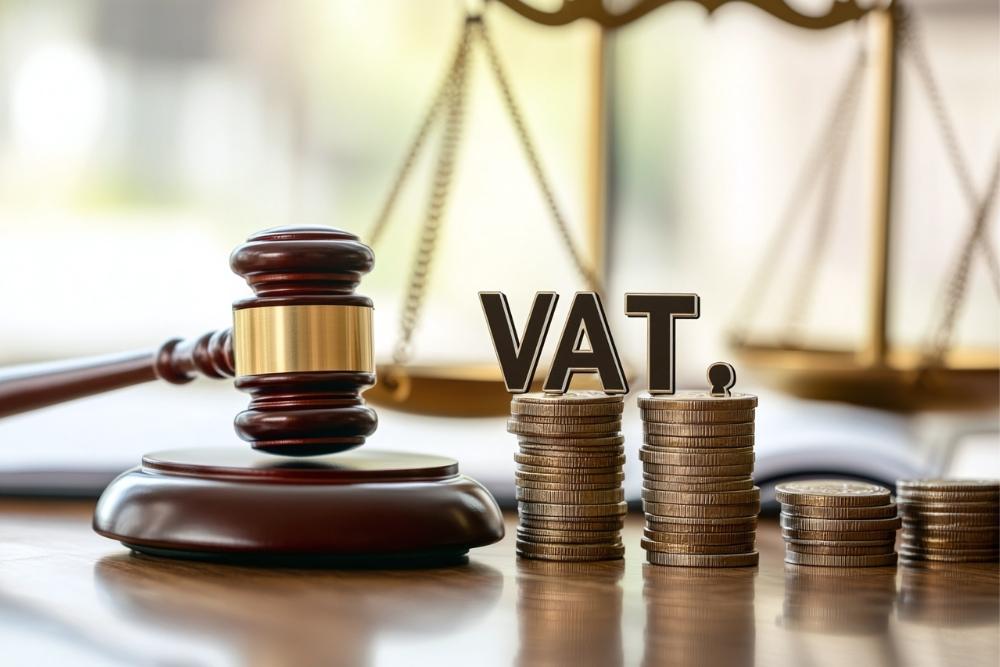Beginning any venture in the UAE is both exhilarating and daunting, particularly given that VAT registration is an obligation of business compliance that should not be ignored. Understanding VAT regulations from day one is crucial no matter where your business resides – use this guide as you register with FTA smoothly!
What is VAT
Value Added Tax or VAT is an indirect tax on consumer goods and services in the UAE, but it is the duty of business to collect and pay VAT. The system promotes services to the population as part of a larger plan of the UAE to diversify its economy and increase transparency in managing taxes by the private enterprises.
Why is it Important for Businesses in the UAE?
VAT stands for Value-added Tax (VAT). In essence, VAT taxes consumption at every stage in its supply chain – goods and services alike are all affected. In the UAE’s case, its rate stands at 5% which applies across various transactions such as collection/refund from businesses as well as ultimately paying it when buying items themselves.
When was VAT introduced in the UAE?
On January 1, 2018 as part of their plan to transition away from oil dependence, UAE businesses implemented VAT. Under FTA supervision, businesses had to improve their accounting skills by issuing invoices and maintaining precise transaction records – quite an adjustment!
Why is VAT Registration Mandatory for Businesses?
VAT registration is important when your UAE business exceeds the turnover threshold as determined by the FTA. VAT Services can keep you in line with tax regulations and increase transparency, thus avoiding the expensive fines!
Benefits of VAT Registration for New Companies
VAT registration is important in helping new companies in the UAE. It boosts your image with clients, suppliers, enables reclaiming VAT on purchases and opens large contracts. In addition, it helps to provide proper financial reporting, which can prepare your business to grow and invest further.
Consequences of Not Registering for VAT
Not registering for VAT will cost your small business a substantial AED 20,000! Aside from the financial aspect, you’ll harm your reputation and be subject to audits or litigation. You’ll also be excluded from VAT reclaim and valuable contracts requiring proper registration.
Who Needs to Register for VAT in the UAE?
Monitor your turnover to avoid VAT registration issues!
VAT Registration Thresholds
VAT registration in the UAE is tied to turnover limits from the Federal Tax Authority. Exceeding specific taxable turnover within a year makes registration necessary or optional. Both mainland and Free Zone industries must track sales, imports, and services to prevent penalties for registering after surpassing the threshold.
Mandatory Registration Threshold
Businesses must sign up for VAT when their taxable turnover either hits or is expected to hit AED 375,000 in the past year. This includes all VAT-applicable sales and services. Not doing so within 30 days of reaching this threshold can lead to hefty penalties.
Voluntary Registration Threshold
Exciting news for businesses! If your turnover or expenses pass AED 187,500, you can voluntarily register for VAT. This helps startups recover VAT on initial investments, plus boosts your professional image for B2B partnerships. Just make sure you follow all the VAT requirements while getting the best Corporate Tax Services!
Types of Businesses Required to Register
If your business in the UAE meets the turnover threshold, you need to register for VAT. This includes Free Zones and online sellers—stay compliant and avoid penalties!
Free Zone Companies
Designated Zone Free Zone companies are subject to special rules regarding VAT depending on the type of transaction. Operations in the zones are not subject to VAT but it does apply to sales to the mainland UAE. They have to apply and evaluate their VAT obligations attentively in case their turnover exceeds the limit.
Mainland Companies
You have a business in the UAE? When you exceed a given threshold on your taxable income, then you will be required to register in VAT. You need to regularly issue tax invoices and maintain your books in order over a period of five years. Failure to do so would lead to punishment and may derail your business opportunities.
E-commerce Businesses
Any business online in the UAE has to apply to be taxed as a VAT either in mainland or Free Zone subject to its turnover being more than the threshold. This is a major catalyst of domestic sales and some foreign sales, building operational credibility and customer trust through other online sales.
Step-by-Step Guide to Registering for VAT in the UAE
Prepare your financial data and trade license prior to beginning VAT registration for ease of registration process.
Documents Required for VAT Registration
To register for VAT, the FTA will ask for several documents that prove your business is operating legally and has met the registration threshold. These typically include:
- A scanned copy of your trade license
- Passport copies and Emirates ID of the business owner and partners
- Memorandum of Association (MOA) or articles of incorporation
- Evidence of business operations includes invoices, contracts, or revenue records.
- Bank account details, including IBAN
- Customs registration documents (if you import/export)
Getting things ready ahead of time helps avoid hiccups down the road.
Information You Need to Provide
You will be asked to give your business information, including the trading name, Home address, activities, estimated turnover, tax group status, and software used. Accuracy is important so you do not experience any delays.
How to Register for VAT Online
It’s easy to register for VAT in the UAE—just set up an account on FTA’s site, share your details, and wait.
Creating an Account on the FTA Portal
Create an account at eservices.tax.gov.ae to register for online VAT. Confirm your email, password, and security details then through email to access your FTA dashboard to handle VAT activities.
Filling Out the VAT Registration Form
Login and pick “Register for VAT.” Fill the long form with activities, revenue projections, contacts, banking information, and business name. Review every part thoroughly to avoid errors and remember to include compulsory PDF or JPEG papers.
Submitting Your Application
Once completed, complete the form and include documentation. Double-check everything against your trade license. When satisfied that everything is in order, click “Submit.” Processing by the FTA will occur within 5 to 20 business days.
Common Mistakes to Avoid During VAT Registration
- Underreporting your taxable turnover below the actual threshold.
- Uploading expired or incorrect trade license documents.
- Using inconsistent or incorrect company names and details.
- Missing key documents required by the FTA during registration.
- Waiting too long to register after nearing the AED 375,000 threshold.
- Failing to double-check form entries before submission.
- Not keeping copies of submitted documents and application records.
What Happens After You Register for VAT?
Receive your VAT certificate and TRN, then meet continual compliance requirements. Let’s get a more closer look:
Receiving Your VAT Registration Certificate
After approval, download your VAT Registration Certificate from the FTA portal. It’ll include your business name, TRN, and the date you registered. Make sure to present this certificate to any clients or auditors who ask for it.
Understanding Your VAT Tax Registration Number (TRN)
Each VAT-registered business receives its own 15-digit TRN for use when filing tax invoices and returns; acting as your business’s UAE VAT identity in B2B transactions and helping validate status validation processes.
Compliance Requirements After Registration
When registering businesses for VAT in the UAE, they must maintain such things as on-time filing, five-year record maintenance, and the issuance of FTA-compliant invoices to avoid getting on the wrong side of the law.
Filing VAT Returns
When you register, file VAT returns either quarterly or monthly, listing output and input taxes on the FTA portal within 28 days.
Maintaining Proper Records
Companies in the UAE registered for VAT must keep all financial records for five years for compliance with audit requirements.
Issuing VAT-Compliant Invoices
Don’t forget – all invoices need to be VAT compliant! If details are missing, penalties might arise, impacting tax claims for clients.
Tips to Ensure a Smooth VAT Registration Process
VAT registration in the UAE is easier with a consultant and reliable software solutions. Let’s have a quick look at tips:
- Hire a professional tax consultant to assist with VAT compliance and registration.
- Obtain VAT planning, return filing, and compliance advice from experts.
- Make it a habit to check FTA for VAT law announcements.
- Be part of a seminar or subscribe to a VAT newsletter for guidance.
- Manage your accounts effectively using Zoho or QuickBooks.
- For error-free VAT calculations and invoicing, automation is the smartest choice around.
The End Note!
To conclude, UAE VAT registration is imperative for legal standing and trust establishment with your prospective buyers. Always obey compliance; preserve precise records and timely filings while incorporating thorough VAT practices into your business for final growth and success.
FAQs






